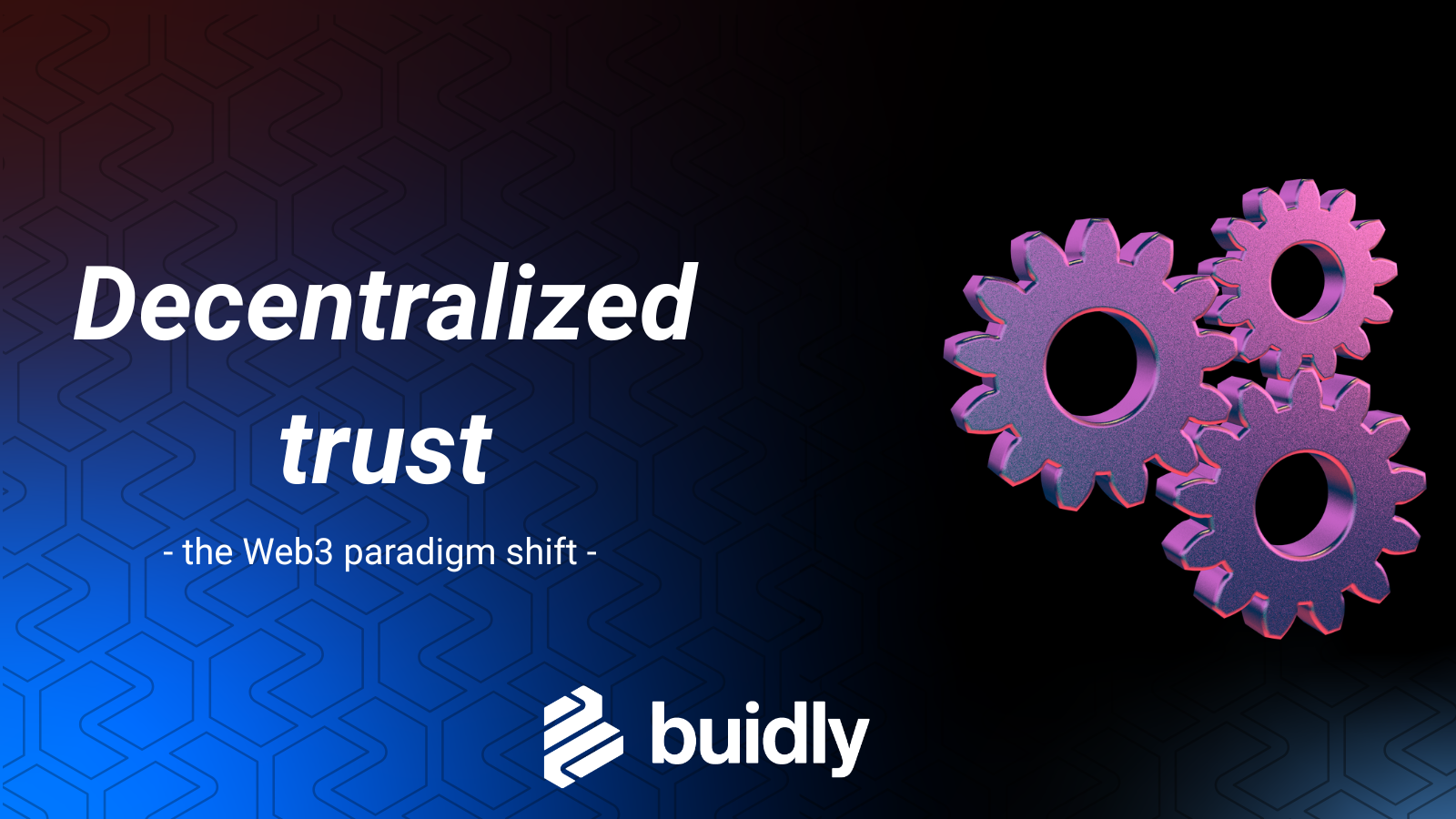
Have you ever wondered how the internet could be more transparent and user-friendly? Let’s dive into how the revolutionary concept of decentralized trust, brought to life by Satoshi Nakamoto in 2008 with the invention of blockchain, is reshaping our digital world. Today, this paradigm shift is known as web3, and it's making waves by putting power back into the hands of the people.
What is Decentralized Trust?
Decentralized trust is pretty straightforward: instead of relying on centralized authorities to manage and verify information, it distributes this responsibility across a network. Blockchain technology is the backbone of this system, ensuring that data is secure and transparent. Imagine a world where you don’t have to trust a single entity but rather a whole network that verifies and records every transaction openly.
The Genesis of Blockchain Technology
Back in 2008, a mysterious figure (or perhaps a group) named Satoshi Nakamoto introduced blockchain through Bitcoin. This decentralized ledger technology meant that every transaction was recorded across a global network of computers, making it incredibly hard to tamper with. Essentially, it was a trustless system where trust is built into the code and distributed among all participants.
So, what’s web3 all about? Think of it as the third generation of internet services. Unlike Web2, where giants like Google and Facebook control the data, web3 uses blockchain to decentralize this control. It’s all about giving power back to the users and creating a more democratic digital environment.
The Core Principles of Web3
- Decentralization: No single entity holds control.
- Transparency: Every transaction is open for inspection.
- User Empowerment: Individuals have control over their data and interactions
.
Transforming Industries with Web3
The entertainment industry is a prime example of where web3 is making a significant impact. Historically, intermediaries like record labels and movie studios have taken large cuts of profits, leaving creators with less than they deserve. With web3 technologies, like NFTs (Non-Fungible Tokens), artists can sell their work directly to consumers and retain more control and profits.
Take, for instance, the music industry. Traditionally, musicians earn a small fraction of the revenue generated by their music. With NFTs, artists like Kings of Leon have released albums directly to their fans, ensuring they get a fairer share of the proceeds.
Decentralized Finance (DeFi) is another area where web3 is shaking things up. DeFi protocols eliminate the need for traditional banks and financial institutions. This means more people can access financial services, from loans to investment opportunities, without the barriers typically imposed by traditional banks.
Think about it: a farmer in a developing country can now access loans through a decentralized platform without the need for a bank. This level of access and inclusivity is unprecedented and has the potential to lift many out of poverty.
The Toxicity of Traditional Business Models
Traditional business models often create adversarial relationships between corporations and consumers. Companies aim to extract as much value as possible while giving as little as necessary in return. This dynamic has bred distrust and dissatisfaction among consumers.
Social media platforms and AI algorithms have only added fuel to the fire. These technologies are often used to manipulate user behavior and extract personal data for profit. Remember the Cambridge Analytica scandal? It’s a prime example of how social media can be used unethically.
The Web3 Solution: Community-Centric Models
Decentralized protocols are at the heart of web3. They enable secure, transparent transactions without the need for intermediaries. This fosters a sense of trust and collaboration within communities.
Decentralized Autonomous Organizations (DAOs) are revolutionizing how communities govern themselves. DAOs operate through smart contracts on the blockchain, allowing for collective decision-making and resource management. This democratic approach ensures that everyone has a voice and a stake in the outcome.
Building a Decentralized Future
Web3 thrives on the creativity and diversity of its participants. It's not just about tech geeks and coders. Artists, writers, musicians, and even educators are contributing to this vibrant ecosystem. Each person brings a unique perspective, making the community richer and more innovative.
Conclusion
In the web3 world, everyone is a builder. Whether you’re creating an NFT, developing a decentralized application (dApp), or participating in a DAO, your contributions matter. This inclusive approach ensures that the web3 ecosystem evolves to meet the needs of all its users. The shift to decentralized trust and web3 is more than just a technological evolution; it’s a movement towards a fairer, more transparent internet. By embracing these principles, we can create a digital world where power is distributed more evenly, and everyone has a voice.
FAQs
What is Web3? Web3 is the next generation of internet services built on decentralized protocols, empowering users by giving them control over their data and interactions.
How does blockchain technology work? Blockchain technology records transactions across a distributed network of computers, making data transparent and secure through cryptographic algorithms.
What are NFTs? Non-Fungible Tokens (NFTs) are unique digital assets that represent ownership of specific items or content, allowing creators to control and monetize their work directly.
What is DeFi? Decentralized Finance (DeFi) refers to blockchain-based financial services that operate without traditional intermediaries, providing more inclusive and accessible financial solutions.
What are DAOs? Decentralized Autonomous Organizations (DAOs) are entities governed by smart contracts and collective decision-making, enabling democratic management of resources and projects.
Why is decentralized trust important? Decentralized trust reduces reliance on central authorities, enhances transparency, and empowers individuals by giving them control over their data and interactions.
Placeholder
Lorem ipsum dolor sit amet, consectetur adipiscing elit. Suspendisse varius enim in eros elementum tristique. Duis cursus, mi quis viverra ornare, eros dolor interdum nulla, ut commodo diam libero vitae erat. Aenean faucibus nibh et justo cursus id rutrum lorem imperdiet. Nunc ut sem vitae risus tristique posuere.







